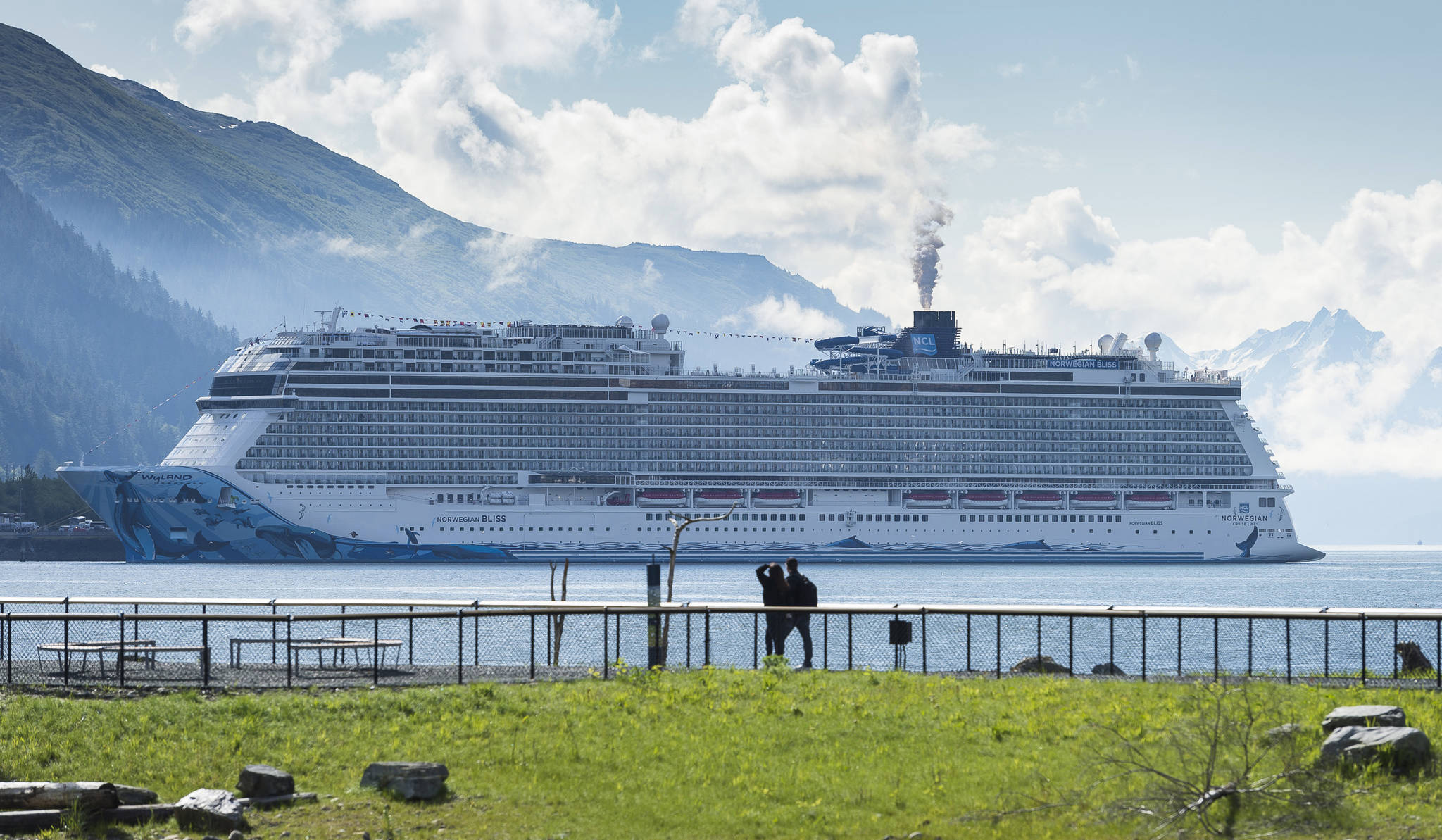Southeast Alaska marine pilots are concerned about the maneuverability of one of the four megaships cruise lines are expected to bring to the state this season.
The Norwegian Bliss and its sister ship are expected to visit the state, along with Royal Caribbean International’s Ovation of the Seas and Princess Cruises’ flagship, Royal Princess, CoastAlaska reported Friday.
The Southeast Alaska Pilots Association tested the limits of each of the four megaships in virtual reality.
At 68,666 tons, Ovation of the Seas is the largest ship ever to visit Alaska. But it’s Royal Princess that’s concerning marine pilots.
[How many tourists is too many?]
“Overall the simulations (for the Royal Princess) produced serious challenges in wind and current conditions common to Southeast Alaska,” the pilots wrote in a report released publicly this month.
The simulations also found that the Royal Princess model didn’t handle well at low speeds. The ship is scheduled to make its first visit to Juneau on May 14.
None of the pilots CoastAlaska contacted were willing to talk about their findings.
Princess Cruises questioned the report’s results but said it will work closely with the marine pilots to ensure safe handling of the vessels in southeast Alaska.
“While we appreciate SEAPA’s (Southeast Alaska Pilots Association) efforts to date, we believe the model they used to assess this ship requires further refinement,” Princess Cruises’ Keith Taylor, executive vice president of fleet operations, said in a statement. “There are three Royal Class ships operating safely around the globe, in many challenging navigational areas.”
[City votes to spend more money on tourism, economic development]
Royal Princess uses standard propulsion: propellers and rudders. The other three ships have Azipod propulsion.
“With an Azipod-style propulsion, the propeller is actually on a pod below the ship, and what you can do is rotate that pod,” explained Keir Moorhead, an engineer who teaches at California State University Maritime Academy in Vallejo.
He said Azipod propulsion performs better at low speeds when big ships need to maneuver in tight spots.
“At any given moment, you can rotate a propeller 360 degrees to give you thrust in any direction,” Moorhead said.
Getting into the Ketchikan port requires passing through the 220-meter-wide Tongass Narrows. There’s not a lot of room to maneuver. And, there’s a 7-knot speed limit.
The pilots recommend against the Royal Princess attempting this in more than 15 knots of wind.
“Fifteen knots of wind in Ketchikan? I was stationed on a ship there. It blows 15 knots quite often,” said Capt. Stephen White, commander of the Coast Guard’s Sector Juneau.
• This is an Associated Press report.

